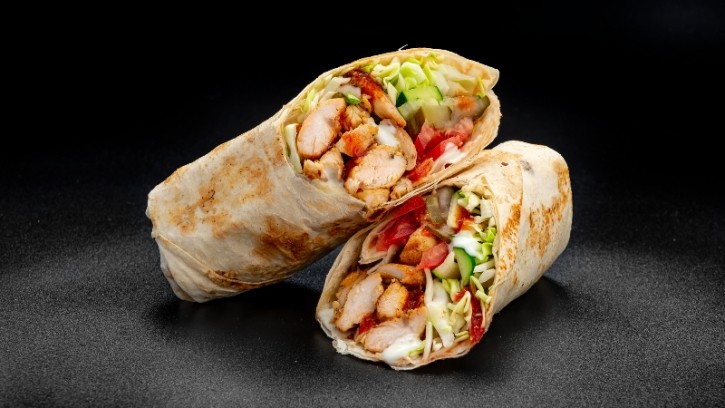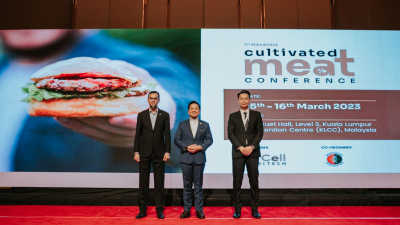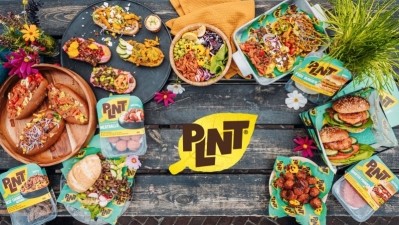Singapore plant-based firm Shandi Global takes on Australian market with protein-rich RTE products

Following encouraging responses from schools and hospital partners in Singapore, Shandi Global is set to kick off commercial sales of its products.
The company recently debuted its latest innovation under the FOREVER brand — plant-based shawarma (a popular dish originating from the Middle East) — at FHA-Food & Beverage 2023.
“We will be starting retail sales with select partners very soon. For online platforms, we’re looking at RedMart to begin with, as it has a large audience. In June, our products will be available at retail stores across Australia,” Suhail Jindran, director of sales at Shandi Global, told FoodNavigator-Asia.
According to Jindran, the Aussie market was chosen because of the local consumers’ understanding and appreciation for plant-based products.
“In fact, we have gotten a lot of demand from there since the beginning. We’ve also had tremendous response from students in the Australian International School. Now, we are collaborating with a partner to sell our plant-based chicken patties, cubes, nuggets, Schnitzel fingers, shawarma etc. in Australia.
“The retail products will come in the ready-to-eat (RTE) format, so consumers can just put the pre-cooked foods into the microwave and enjoy them shortly after,” he added.
Besides Australia, Shandi Global is also looking to explore the North American market.
“Singapore will be our main hub, where we develop the key recipes and flavours. If we can manufacture the end products in Australia or North America without setting up a huge plant, it would ease up supply chain logistics and help achieve price parity.”
Targeting the younger gen
Shandi Global holds five patents, including its high-moisture meat analogous (HMMA) extrusion technology.
“Our recipes boast a good digestibility index (a measure of how well the body uses a particular source of dietary protein). Unlike other plant-based foods, our products will not make you feel bloated.
“Furthermore, the isolated proteins in our recipes come from soy, pea, chickpea, mung bean and fava bean. We do not depend on a single type of bean, which will limit the amount of protein that is extracted. We use various types of beans and lentils whose nutritional values are complementary. By doing that, we are able to achieve a protein profile that is on par with or even higher than normal chicken meat,” Jindran shared.
Data from the firm shows that its plant-based meat comprises 27g to 31g of protein for every 100g of meat, whereas regular meat contains 24g to 28g.
In addition, its proprietary HMMA technology is said to enable the recreation of chicken meat’s changing characteristics — in terms of texture and taste — before and after cooking.
The tech involves extraction of amino acids from the plant ingredients and production of chunky meat-like fibres that mimic real whole-cut meats.
Natural spices are “embedded” into the fibres to remove the soy flavour so that the end product “looks, feels and tastes exactly like real meat”.
“Our plant-based meats are free from artificial or GMO additives, and there is no added salt, hormones or antibiotics. There are a lot of myths surrounding plant-based foods. That is why when we entered this sector, we decided not to head straight into retail. Instead, we focused on education and going into schools because that is the generation who needs to learn [about alternative proteins].
“The world’s population is nearing 8 billion and it is only going to keep growing. Given the growing awareness on sustainability across continents as well as the global food crisis, the potential for plant-based development is unlimited,” said Jindran.


















